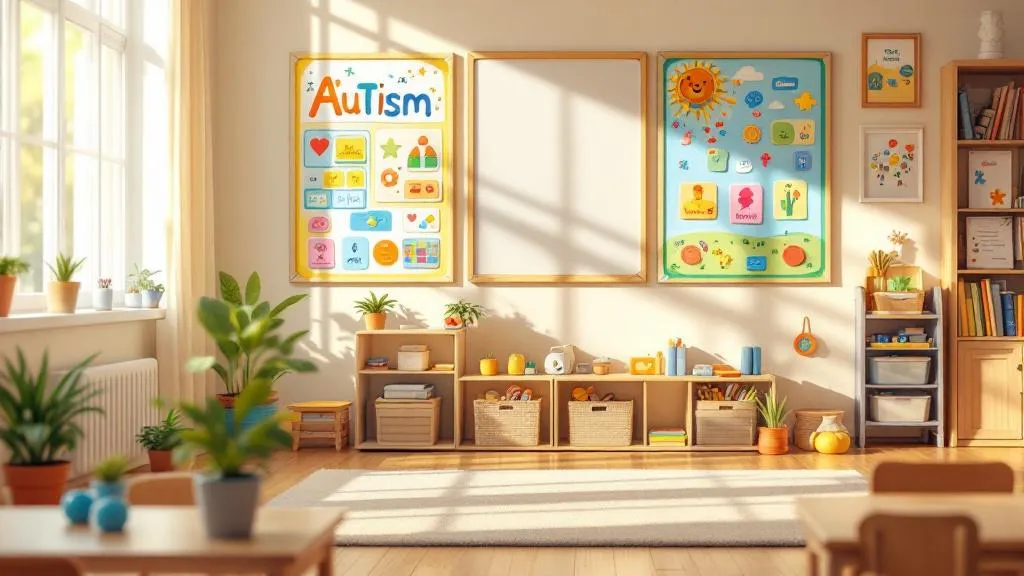How Autism Affects Your Social Battery and Recharging Tips
Autism social battery drains quickly due to sensory overload and masking. Learn why it happens and discover effective ways to recharge and manage social fatigue.

Key Points:
- Autistic individuals often experience a faster depletion of their social battery due to heightened sensory processing, communication challenges, and masking.
- Understanding personal triggers and energy drains can help manage social fatigue effectively.
- Recharging strategies like structured downtime, sensory-friendly environments, and ABA therapy can support energy restoration and social engagement.
Ever felt completely drained after a long social event? For autistic individuals, this happens much faster and more intensely. Conversations, noises, and unpredictable interactions can quickly deplete their social battery, making alone time essential for recharging. Understanding this helps parents and caregivers provide the right support when it’s needed most.
How Does Autism Affect Your Social Battery?
Social interactions can be mentally exhausting due to sensory sensitivities, communication differences, and the effort of masking (hiding autistic traits). Many autistic individuals need extended alone time to recharge after socializing, even in low-demand settings.
Unlike neurotypical people, who may feel energized by social interactions, autistic individuals often experience social fatigue much quicker. This exhaustion isn’t just about feeling tired—it can lead to meltdowns, shutdowns, or an inability to function in social situations.

Why Do Autistic Individuals Experience Social Fatigue Faster?
Autistic individuals process social interactions differently, and this can make seemingly simple conversations or group settings incredibly draining. Several key factors contribute to faster social exhaustion:
1. Heightened Sensory Processing
Many autistic people have sensory issues, making everyday social settings overwhelming. Noisy environments, bright lights, and strong smells can drain energy quickly, making social engagement feel exhausting rather than enjoyable.
2. Communication Challenges
Interpreting social cues, maintaining eye contact, and understanding tone of voice require extra effort for autistic individuals. This cognitive load can rapidly deplete their social battery, making even short conversations tiring.
3. Masking and Social Camouflaging
Many autistic individuals mask their autistic traits to fit in, consciously controlling their behavior to appear more neurotypical. This is mentally exhausting and can lead to burnout over time.
4. Difficulty with Transitions and Unstructured Socializing
Unpredictable social situations, such as casual small talk or group gatherings, can be stressful. Autistic individuals often feel more comfortable in structured settings with clear expectations.
5. Emotional Regulation Demands
Social interactions can trigger strong emotions, requiring additional effort to manage. Anxiety, frustration, or overstimulation can make socializing feel more like a task than a pleasurable experience.
What Are Signs of Social Exhaustion in Autism?
Recognizing social exhaustion in autism is essential for preventing burnout and emotional distress. Many autistic individuals experience specific signs when their social battery is drained, signaling the need for a break. Parents and caregivers should watch for these indicators to support their child’s well-being effectively.
- Irritability and Mood Swings – Social fatigue can lead to frustration, irritability, or sudden mood changes, especially after prolonged interaction. Small stressors may feel overwhelming, causing outbursts or emotional shutdowns.
- Increased Sensory Sensitivity – Loud noises, bright lights, or even light touches may become unbearable when an autistic person is socially drained. Sensory overload is a key sign that they need to recharge.
- Avoidance or Social Withdrawal – When overwhelmed, autistic individuals may retreat to a quiet space, refuse to engage, or stop responding in conversations. This isn’t rudeness—it’s a necessary coping mechanism.
- Selective Mutism or Speech Difficulties – Talking can become exhausting, leading to difficulty forming words or complete silence. Social exhaustion can temporarily impact verbal communication, making it harder to express needs.
- Physical Fatigue or Shutdowns – Social burnout often manifests physically, causing extreme tiredness, lack of focus, or even shutdowns where an individual becomes unresponsive and needs quiet time to recover.
- Increased Stimming Behaviors – Stimming (rocking, hand-flapping, or humming) may increase as a self-soothing method. This helps regulate emotions and cope with overwhelming social energy depletion.

How Can Autistic Individuals Recharge Their Social Battery?
Finding effective recharging strategies is crucial for maintaining mental and emotional well-being. Here are some ways autistic individuals can restore their energy after socializing:
1. Scheduled Alone Time
Creating a routine that includes intentional downtime helps prevent burnout. This could be quiet reading, playing with sensory toys, or engaging in a special interest.
2. Sensory-Friendly Environments
After social interactions, retreating to a calming space can help reset the nervous system. A dimly lit room, noise-canceling headphones, or a weighted blanket can make a big difference.
3. Engaging in Special Interests
Many autistic individuals find joy and relaxation in their special interests. Whether it’s art, music, or a favorite TV show, engaging in these activities can help restore their energy.
4. Mindful Movement and Stimming
Physical activities like stretching, deep-pressure activities, or stimming (such as fidgeting or rocking) can help release built-up tension from social interactions.
5. Clear Communication with Caregivers
For children, it’s important for parents to recognize when their child needs a break. Encouraging open discussions about energy levels and allowing breaks without guilt can prevent meltdowns.
6. Using Social Energy Strategically
Instead of forcing lengthy social interactions, shorter and more meaningful engagements can be more sustainable. Autistic individuals benefit from choosing when and how to socialize based on their energy levels.
7. ABA Therapy for Social Skills Development
Applied Behavior Analysis (ABA) therapy can help autistic individuals develop strategies for managing social fatigue. ABA programs focus on building self-advocacy skills, recognizing early signs of burnout, and structuring social interactions in a way that feels more natural and less draining.
How Can Parents Support Their Autistic Child’s Social Battery?
Parents play a crucial role in helping their children navigate social fatigue. Here are ways to provide support:
- Respect their need for breaks – Avoid forcing socialization if they’re showing signs of exhaustion.
- Establish a predictable routine – Consistency helps autistic individuals feel more in control of their energy levels.
- Advocate for their sensory needs – Ensure they have access to quiet spaces and sensory tools.
- Educate others – Help teachers, family members, and friends understand the importance of respecting your child’s energy limits.
How ABA Therapy Helps Manage Social Energy
ABA therapy offers individualized support to help autistic children and adults develop sustainable social skills without leading to burnout. At Discovery ABA, we understand that every autistic person has unique needs. Our therapy programs are designed to:
- Teach self-regulation techniques to manage social fatigue.
- Help recognize and communicate energy levels to caregivers and peers.
- Provide structured social interaction practice to build confidence without overwhelming the individual.
Through our ABA therapy services in New Hampshire, North Carolina, Nevada, Tennessee, New Jersey, Utah, Virginia, and Maine, families can access support tailored to their child’s unique needs. If you’re looking for effective autism therapy in any of these areas, Discovery ABA is here to help your child build social skills while respecting their energy and individuality.
Contact us today to learn more about our ABA therapy programs and how we can support your family.
Does Your Child Have An Autism Diagnosis?
Learn More About How ABA Therapy Can Help
Find More Articles
Contact us
North Carolina, Nevada, Utah, Virginia
New Hampshire, Maine
Arizona, Colorado, Georgia, New Mexico, Oklahoma, Texas
.avif)




































































































